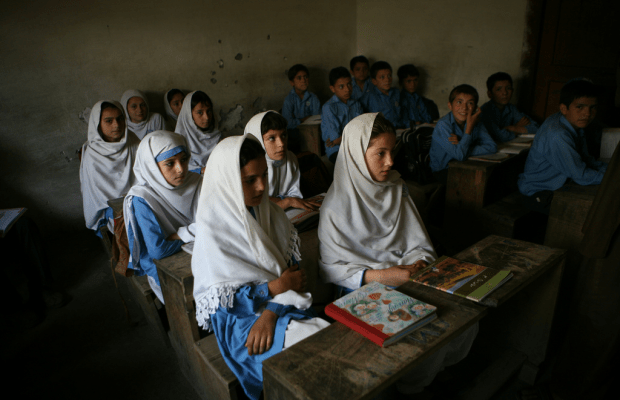Last year will be remembered as one of the biggest years of extremist violence around the world. The West experienced several brutal tragedies, while those in the Middle East and central Africa endured unimaginable suffering at the hands of such terrorist groups as Boko Haram and ISIS.
Still, education is the enemy of radicalism.
Many voices offer solutions to this ever-growing problem, and maybe the most insightful is that of Malala Yousafzai. Since winning the Nobel Peace Prize, this remarkable young woman has campaigned for investment in education in developing countries. Malala — shot in the face by Taliban extremists while walking to school — knows better than anyone that education is the enemy of radicalism. Fundamentalists try to prevent people from accessing schools, particularly women, because these fanatics’ hate is complemented by serious ignorance.
While no leader would disagree with Malala, there is a noticeable lack of political will to make education a global priority. I think it’s about time to fight “ignorance” and “desperation” through an Education for All campaign, openly declaring education as a basic human right. This way, every child on the planet is guaranteed a solid education.
Technological innovation is key
The fact that we lack resources to innovate in education is as true now as it was 10 years ago. Technology is providing us with a solid opportunity to rethink the way education is supported everywhere. Smartphones are the most relevant example, astonishing us every day with how ubiquitous the devices have become. After all, by 2020, 70 percent of the world’s population will own a smartphone — and be connected.
That’s quite a figure — but it’s not enough That’s why folks like Mark Zuckerberg of Facebook, Google’s Sundar Pichai and the new CEO of Microsoft, Satya Nadella, are pushing for 100 percent Internet access for the whole wide world. Consider what that means: the first major global inequality — an information inequality — to be completely erased. We’re not talking distant future, either, but within the next five years. Combine that with free knowledge, world views and courses offered by Khan Academy, MIT and edX — all of which empower anyone to learn anytime.
There is a noticeable lack of political will to make education a global priority.
When discussing global initiatives, it is obvious free education tools are the ultimate global delivery system for education — especially in the poorest nations. This is important when discussing global education initiatives. Imagine what might be achieved if we approach education with the same global commitment witnessed in the COP21 climate talks.
I can: A world with zero percent illiteracy. A world where everyone has numeracy skills. A world where people study at the highest level, allowing them to improve prospects for themselves and their communities.
Governments and private tech must step up
All of this is possible with a commitment from world governments, but also from tech sectors. Private firms are keen to build a truly global Internet, but they have been slightly less forthcoming about the content they would deliver (or allow). Getting the world online freely is fine — using the immense power of information technology to raise standards of living around the world would be something extraordinary.
Education won’t eradicate extremism. Studies show that even the most educated people harbor hate and commit acts of violence. But as Malala says, ignorance and poverty play a major role in providing soldiers to the armies of global extremists. That’s why terrorist groups so passionately oppose learning, and why we should do everything and anything possible to provide a solid education for every child on earth.
